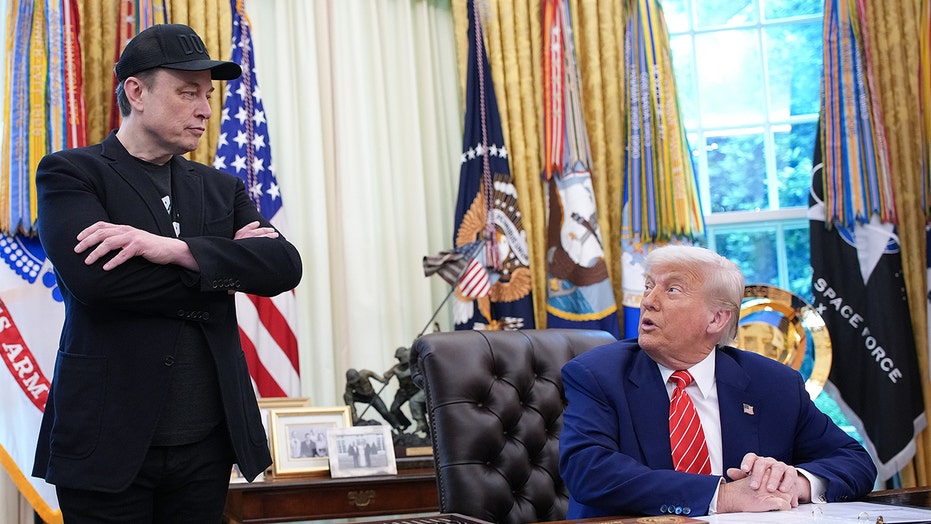Elon Musk Faces GOP Backlash Amid Escalating Trump Feud and Top Political Headlines
Start your day informed with the latest top stories delivered straight to your inbox every morning from the most trusted name in news.

The ongoing feud between tech mogul Elon Musk and former President Donald Trump has erupted into a full-blown political crisis, sending shockwaves through the Republican Party. The situation intensified after Musk made shocking allegations implicating Trump in the Epstein scandal, prompting swift backlash from GOP lawmakers. Prominent Republicans have rushed to defend Trump, describing Musk's claims as “over the line,” and accusing him of undermining the party’s efforts ahead of the critical 2024 elections.
The conflict deepened as Musk and Trump clashed publicly over a key piece of legislation central to Trump’s conservative agenda. The disagreement has created what party insiders are calling a “nightmare scenario.” While Trump demanded unity on his legislative priorities, Musk used his influence to rally opposition, claiming the bill would stifle innovation and harm American business. The infighting has left many Republican strategists scrambling to contain the damage and project a united front as the election season intensifies.
The impact of the high-profile spat has been immediate and severe in the financial markets, particularly for Tesla. Investors reacted sharply to news of the public falling out, with Tesla’s stock price suffering its steepest drop in months. Analysts warn that the ongoing feud could have long-term consequences for both Musk’s business interests and the party’s broader economic message. Some speculate that continued instability might jeopardize Republican fundraising efforts tied to major business donors who have previously supported both men.
Amid the political tumult, federal officials announced the abrupt termination of a controversial airport watchlist program overseen by the Department of Homeland Security. The decision came after explosive allegations of abuse and concerns about the weaponization of security tools for political gain. The department stated it was “clear” that public trust had been eroded and that reforms were necessary to safeguard civil liberties.
In other developments, U.S. border authorities exposed a deadly partnership between Mexican cartels and Chinese chemical suppliers during a massive bust at the southern border. Officials confiscated large quantities of precursor chemicals used in fentanyl production, highlighting what they described as a “multi-front effort” by criminal organizations to undermine U.S. law enforcement. The coordinated operation underscores growing fears over the international dimensions of America’s opioid crisis.
Outside the political realm, the nation’s eyes are on the Midwest, where a former police chief—dubbed the “Devil in the Ozarks”—remains on the run. Law enforcement experts have warned area residents and outdoorsmen to remain vigilant, describing the fugitive as extremely dangerous. Local and federal agencies have intensified their manhunt, urging the public not to approach the suspect.
Meanwhile, on the campaign trail, Democrats faced internal criticism after Senator John Fetterman chastised his colleagues for their sudden embrace of Elon Musk, despite months of derision directed at the billionaire. The apparent reversal has fueled accusations of political opportunism and highlights the unpredictable alliances forming ahead of the next election cycle.
As these headline-grabbing stories unfold, veterans and citizens alike gathered in Normandy to honor the dwindling ranks of World War II heroes during the annual D-Day commemoration. The emotional event served as a reminder of the enduring sacrifices made in the fight for freedom, even as today’s headlines document bitter divisions and crises at home.




